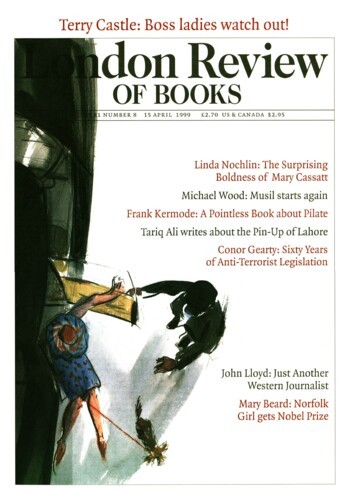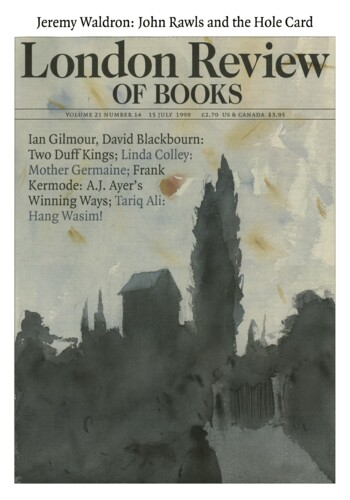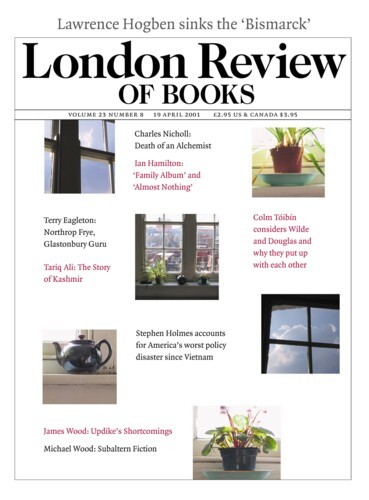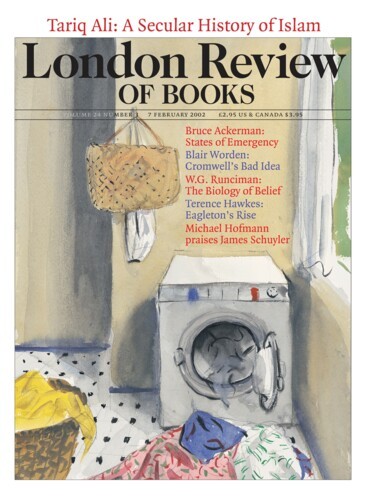‘Try and disarm us, if you can’: old friends and new enemies in Lahore
Tariq Ali, 15 April 1999
Islamabad remains the official capital, but these days real power in Pakistan is exercised from the Punjabi capital of Lahore. This city, dry, warm and abundant, where I spent the first 20 years of my life and which I still love, is always changing, usually for the worse. The old Mall at its lower end, near Kim’s Gun, was once the haunt of bohemians of every sort. Poets, artists, left-wing intellectuals, film directors could be seen at their tables in the Coffee House, cursing the dictator of the day or discussing the merits of blank verse as they dipped their samosas in a mint-chilli compote and sipped tea throughout the month of Ramadan. That was more than thirty years ago. Queen Victoria’s statue, which once sat in front of the Punjab Assembly building, has long since gone. Some imaginative soul decided to replace history with fantasy. A giant stone Koran is poised precariously on the plinth where the Queen once sat.




